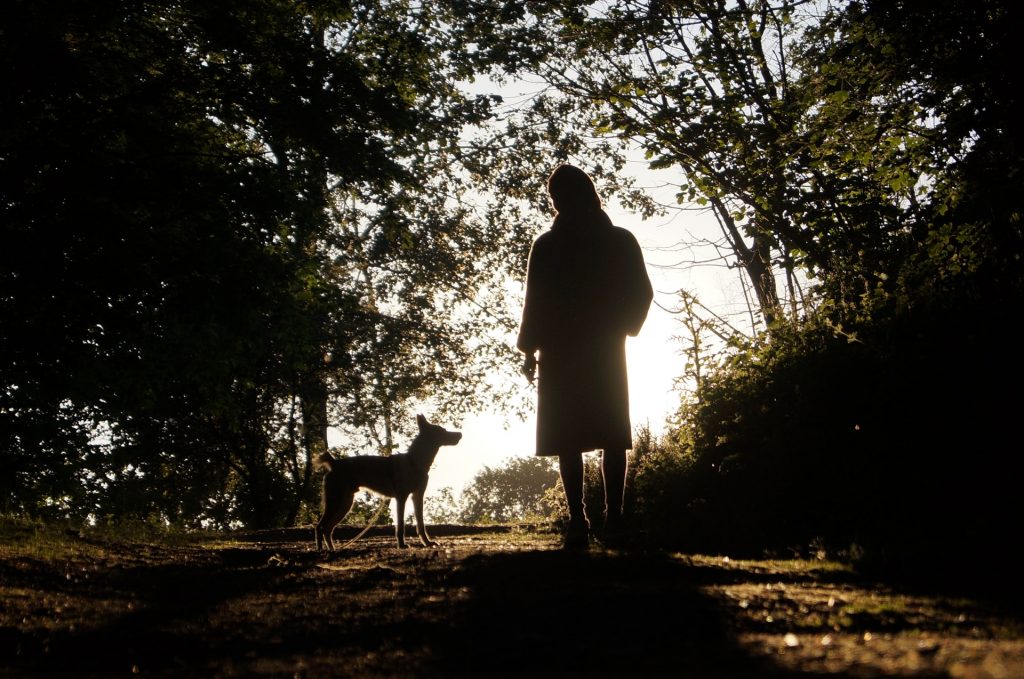In this blog post, I’d like to share my personal experience of losing one of my precious pets and how my surviving pet, Emma, and I, got through the devasting loss together.
When my cat Patrick died unexpectedly, I was left heartbroken. I cried and wailed as if I lost a spouse. His death came on suddenly. I was getting ready for work when I heard a thud in the bedroom. I instinctively knew it was Patrick falling off the bed, where he was when I last saw him. He was such an able-footed cat, so the sound was an indication something was not right.
When I reached him, he was lying on his side, gasping for breath. I got dressed and scooped him up in a blanket, then floored it to the emergency animal hospital. Emma was standing by watching everything. I left with Patrick in a flurry, and as fate would have it, I came home empty-handed. She never got to say goodbye.
Emma and Patrick were companions. She was aloof with humans but, she loved Patrick, and he adored her! Every morning I watched Patrick hang back so that Emma could eat her fill of food first then, when she was done, he ate. Patrick was the most gentlemanly of cats. He was a king, and Emma was his princess. On days I came home from work early, I would find them entwined together, on my bed, their heads and bodies positioned in such a way they formed the shape of a heart, sleeping peacefully.
In the early days after Patrick died, Emma hid away from me. I think my crying kept her away. My heart broke for her when she would come to the door of my room and look at me. She seemed lost. She knew he was gone. I tried to comfort her, but she would scatter.
Not long after we lost Patrick, Emma jumped up to sit on my lap. As I said, she was aloof with people, so this was a call for comfort. I put her on my chest, and the two of us bonded over our mutual loss. As the days turned into weeks, then months into years, Emma and I became closer. She matured into the queen of her lair and enjoyed the rest of her days as a solitary pet. Occasionally, she would yowl at night in front of the patio door. The two of us still missed our sweet boy.
In my research, I discovered blogs and articles that address the issue of pet grief quite well. Susan Paretts, in her blog, Do Dogs Grieve Other Dogs, published July 15, 2019, for the American Kennel Club, cites a research study by Dr. Brian Hare, which indicates, “owners who are feeling stressed tend to have dogs who are stressed too.” Dr. Hare is a professor of evolutionary anthropology at Duke University and founder of Duke’s Canine Cognition Center, in a study in the June 2019 edition of Scientific Reports noted, “using cortisol measurements in the hair or fur of people and pets,” he argued, “people who are stressed at home have dogs who show signs of stress.” “Cortisol is a chemical produced by the body in dogs and humans when an individual is under some kind of stress.”
It is important to remember that your surviving pet is looking to you for reassurance. While it is impossible for you to not to feel stressed from the loss of a beloved pet, the loss is upsetting to your surviving pet as well. Your pet will want to comfort you but will need comfort too. Try to keep the same routine. If you took walks or spent time with your pets at certain times of the day, keep that going. It may be hard for you at first but, keeping to a routine helps the grieving process and brings stability after emotional events. The above study focused on dogs but, other critters feel the loss of their companion as well. Keeping their routine helps them feel secure. Grieve together.
If you can, take your surviving pet on a pet date. They’ll enjoy spending quality time with you, especially if they’re your primary focus. Taking a trip for ice cream or to the pet store or just bringing them along with you while you’re running errands will make them feel special. Most animals are pack animals, so spending time with you is meaningful to them. They’ll appreciate it!
Keep toys, blankets, or trinkets that have the scent of your lost pet. Put them where your surviving pet sleeps or relaxes. When you see them cuddling or playing with them, go over and give them some love. Speak words of comfort to them. Comforting them releases feel-good hormones for you too!
Stephanie A. Sarkis Ph.D. writes in her blog, 10 Tips for Helping Your Grieving Pet. How to help your surviving pet heal after they lose their buddy, published on June 24, 2014, in Psychology Today, to be careful not to project your feelings onto your surviving pet. She states: “beware of projecting, or putting your feelings, onto your dog. You may say to your family, “she/he looks so sad” when she is, in fact, just eating her food.” This advice also applies to other species of pets. Allow your survivor autonomy to re-adjust with time. Unless you see behavior changes that are troubling to you, let them be. If you are concerned about their behavior, call the vet for a consultation.
In time you may decide to welcome another pet into your family. That is a personal decision based on your individual needs. Until then, give yourself and your surviving pet time to acclimate to this new way of life.
You can create an obituary memorializing your pet at petheaven.org. Many have found that to be an important step toward their healing.
Wishing you peace in your heart,
RO


